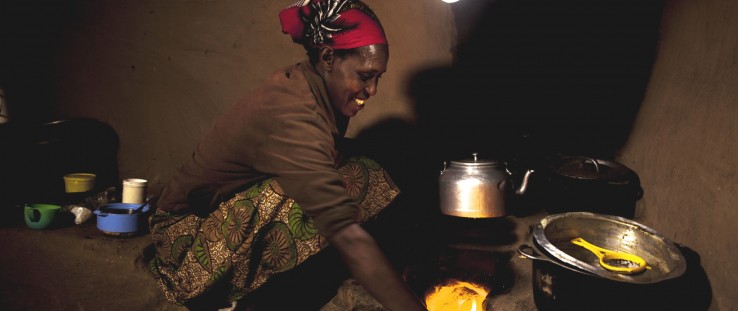 A d.light customer has enough light to cook at night.
d.light
A d.light customer has enough light to cook at night.
d.light
 A d.light customer has enough light to cook at night.
d.light
A d.light customer has enough light to cook at night.
d.light
Speeches Shim
It’s 7:30 on a Wednesday night in Naivasha, Kenya. If tonight were a normal night, Margaret Muchina would be squinting in the light of her cell phone, trying to serve up a few last meals from her food cart before darkness forces her to close.
But tonight, she is staying open late. Workers on their way home from nearby farms, ranches and hotels are lined up at her stall to buy plates of githeri, a spicy, filling combination of maize and beans.
So what made the difference? Muchina just installed a standalone solar-powered system from d.light to power her cart at night. Now, she says, “I sell for two hours or two and a half hours more than I did before.” And her revenue is up 30 percent.
“Most of my customers now find me in the evening,” she says. “And they are many. So I sell more now.” After the dinner rush ends, she uses the flashlight that came with her new system to light her way home.
Every day, stories like this are unfolding across Africa. In millions of homes and for millions of small businesses, the lights are coming on for the first time. Solar energy is replacing fuels like kerosene, which are expensive, smoky and cause many accidental fires.
The time is ripe for this change. The cost of solar technology has plummeted, making it a realistic energy choice for families who live far away from traditional power grids. And, thanks to the advent of mobile money, families no longer need to worry about the up-front costs of putting a solar panel on their roof. Instead, they can use pay-as-you-go financing to make tiny, daily payments as little as 15 cents a day from their phones. The pay-as-you go model gives greater flexibility to people like Muchina. There is an added bonus for solar home systems, because once they are fully paid off, customers own them outright.
USAID and its partners Power Africa, the U.K. Department for International Development, Shell Foundation, and the African Development Bank are helping millions of people take advantage of these powerful trends.
Just a year ago, these partners launched the Scaling Off-Grid Energy Grand Challenge for Development, with a focus on pay-as-you-go solar home systems. Its goal is to connect 20 million households in sub-Saharan Africa with clean, affordable energy by 2030. After only one year, it has made 40 investments in early-stage, off-grid energy companies, resulting in a projected 4.8 million new electricity connections.
These eight stories highlight companies helping to power an off-grid revolution in sub-Saharan Africa.
d.light Uganda, Kenya
After a kerosene accident badly injured his neighbor’s son, Sam Goldman created a new company selling safe solar lanterns. Years later, following early support from USAID, d.light, which is based in California, has reached more than 75 million people and business is booming: Every two seconds, someone gets access to a d.light solar product for the first time.
Last year, d.light received a grant under the Scaling Off-Grid Energy Grand Challenge to prove that its solar home systems worked, test pay-as-you-go technology and expand that segment of its business into Kenya. The company has since attracted tens of millions of dollars in private investment. The grant from USAID “gave us an opportunity to try out and fine-tune our business model at a rapid pace,” says Rohit Jain, d.light’s manager of finance and global partnerships. “USAID really had an impact on us raising this debt and equity capital.”
PEG Ghana
“The challenge many people have here in Africa is that they are completely off grid and are not able to buy solar home systems outright just because they are too expensive,” says Simone Vaccari, PEG Africa’s country manager for Ghana. That’s why PEG is focused on solar home systems with pay-as-you-go plans.
The company also provides other important benefits to its customers. “We are not only offering solar home systems, but we’re trying to promote financial inclusion,” says Vaccari. Realizing that unexpected medical expenses derailed its customers’ repayment plans, PEG partnered with a micro-insurance company to provide hospitalization insurance to all customers in good standing. This benefit is a powerful incentive for customers to stay on track with their payments.
With support from USAID, PEG is now experimenting with user-friendly ways to collect payments from rural customers. It is piloting three new payment models to determine which has the greatest potential: dedicated short codes to simplify the user experience, a call center that allows customers to pay over the phone, and a program to increase the number of mobile money agents in the communities PEG serves. Early results are promising: These innovations have led to increased repayment levels and less customer churn.
VITALITE Zambia
VITALITE sells solar home systems, solar lamps and appliances in Zambia. It is the first company to pilot a pay-as-you-go model in the country, where mobile money is still a new technology. Because of this, VITALITE had to be creative, developing a business model that works for its customers.
“We’ve created an entire parallel system to mobile money,” says co-founder John Fay. “Zambians’ use of mobile money has been limited, and mainly used in urban parts of the country.” To close this gap, VITALITE is using the grant support from USAID to build a network of mobile money agents who collect payments directly from customers.
VITALITE listens closely to its customers, using its network of agents as well as focus groups to collect feedback. For example, the company is adding a solar television to the VITALITE offering based on customer demand. Today, the company is operating in Lusaka and a few other provinces, and plans to expand throughout Zambia in the next three years.
Orb Energy Kenya
Orb Energy provides solar power systems to residential and commercial customers. It has installed more than 130,000 systems in India over the past 10 years, and recently expanded to Kenya, where it is a growing provider of solar home systems.
Most customers cannot afford to purchase a system in cash. However, Orb is limited in the number of customers it can finance because it only has so much working capital.
To close this gap, Orb is developing a new business model. The company now sells solar products through agents at banks and microfinance institutions. These partners handle the consumer financing, helping Orb grow at a faster pace.
USAID support has helped Orb put a stronger branch network in place. Damian Miller, Orb’s CEO, explained, “Our main reason for doing that was we wanted to get closer to our bank and MFI [microfinance institutions] partners and show them that we have that local presence.” The branch network makes it easier to work with local banks and to connect with customers. Today, Orb has nine branches in Kenya alone, and the company has reached 10,000 households.
Greenlight Planet Uganda, Nigeria
In 2005, T. Patrick Walsh, an engineering student from the University of Illinois, traveled to India with Engineers Without Borders. While he was there, he learned that many people used kerosene lamps, but wanted a cheaper, safer source of light. Kerosene lamps produce harmful fumes and are expensive to run, with many rural households spending large proportions of their income on fuel. So Walsh designed and sold his first solar lantern prototype. When it proved successful, he roped in two other students and Greenlight Planet was born.
A decade later, the company has sold more than 7 million solar lamps under the Sun King brand. It has also diversified into new products like solar-powered radios, fans and a solar TV. It is now pioneering a pay-as-you-go plan, making its products accessible to low-income customers. All along, USAID has been an important partner, supporting Greenlight Planet’s expansion into new markets.
“The best part is knowing that we’re making a useful contribution in the lives of so many people worldwide. Indeed, we feel that solar power can scale even further, powering whole communities, even industry, and we’d like to play a part in that,” says Amitesh Sinha, the company’s CFO.
Fenix Uganda, Zambia
Fenix is a household solar company serving more than 120,000 homes in Uganda. With USAID support, it is now expanding into Zambia, an underserved market. The company, co-founded by two former Apple employees, provides a basic solar kit that is modular and can be expanded as customer needs grow, providing options to power phones, lights, radios, televisions and more.
“We’re trying to build this energy ladder where customers can come in and there’s always going to be an ultra-affordable option that they can start with. Customers can then qualify for accessories over time and unlock additional battery power,” says Caitlin Burton, Fenix’s director of business development.
Fenix co-brands its products with MTN, Uganda’s leading mobile network operator that seeks to boost the use of mobile money among its customers. “When we came into Uganda, we didn’t realize we would partner with a telco,” says Burton. But leveraging MTN’s existing customer base has helped Fenix get a strong start in a new country. Fenix is now testing that approach in Zambia, where it has a partnership agreement with MTN, and will begin selling in the new market late this summer.
Shinbone Labs Benin, Ghana
With a small grant from USAID, Shinbone is piloting extremely low-cost solar home systems in underserved Benin. As it pilots its new offerings, it is paying close attention to how new products perform and listening carefully to its customers.
“The first thing we measure is the impact the system is having on the client’s life,” says Olou Koucoi, the company’s CEO. “We go back to each client and see how they’re using the system, how we’re making impact, whether they are satisfied.” By January of this year, the company had installed 125 systems. Shinbone surveys all of its customers at installation, and surveys them again after one, three and six months.
Shinbone’s customer focus seems to be paying off. Based on survey feedback, it recently offered a solar home system package with a solar television and satellite box to increase sales. In addition, its products now power two mayors’ offices and three hospitals in rural Benin. All of these sales were generated by office and hospital employees who had used Shinbone products in their homes and recommended them to their employers.
Village Energy Uganda
Village Energy is strengthening the solar energy market in rural Uganda by training a network of technicians to sell and repair solar products. It was designed to fill a big gap in the market: As solar energy companies expanded into Uganda, many lacked strong distribution and servicing models. Broken systems and long wait times for repairs led to customer dissatisfaction, reducing trust in solar products. This slowed the growth of the entire off-grid energy market.
Village Energy is now focused on building a strong last-mile sales and service network. With support from USAID, it is expanding its training program for young men and women to be service and sales technicians. Jay Patel, the company’s co-founder, joined Village Energy after five years at Google. He hopes to expand the company further into East Africa because “Our model and the problem we’re trying to solve is not unique to Uganda.”
A Transforming Light
When Margaret Muchina lit up her food cart, it changed everything. But she is just one of many people whose lives have been transformed by energy access. Every day, nearly 250,000 people get electricity for the first time.
Still, in sub-Saharan Africa, 609 million people live without electricity. In some countries, that means that less than 5 percent of the population has electricity access.
New technologies, growing investor interest, and smart companies are helping to close this gap every day. To learn how to partner with Scaling Off-Grid Energy to keep this momentum going, email info@scalingoffgrid.org or visit www.scalingoffgrid.org.


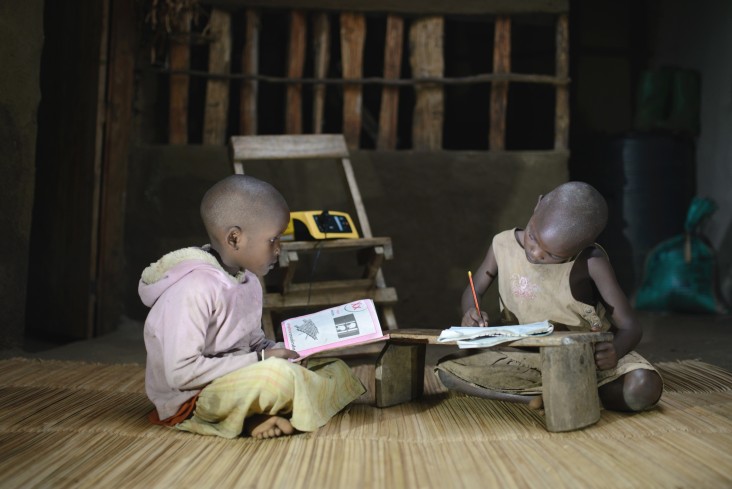
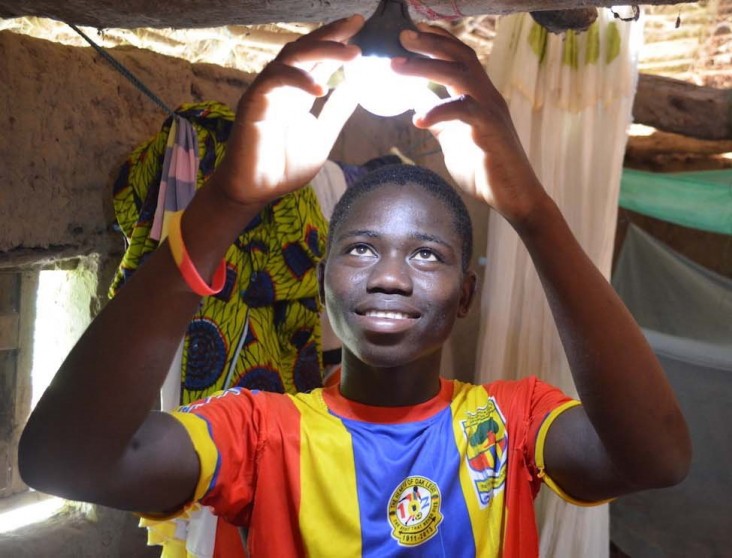
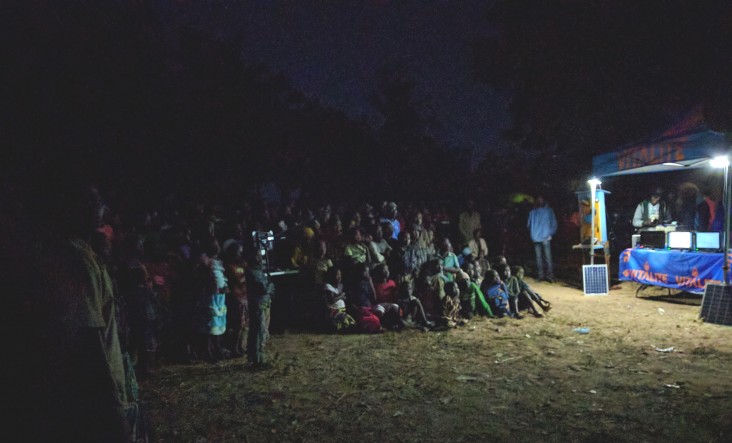
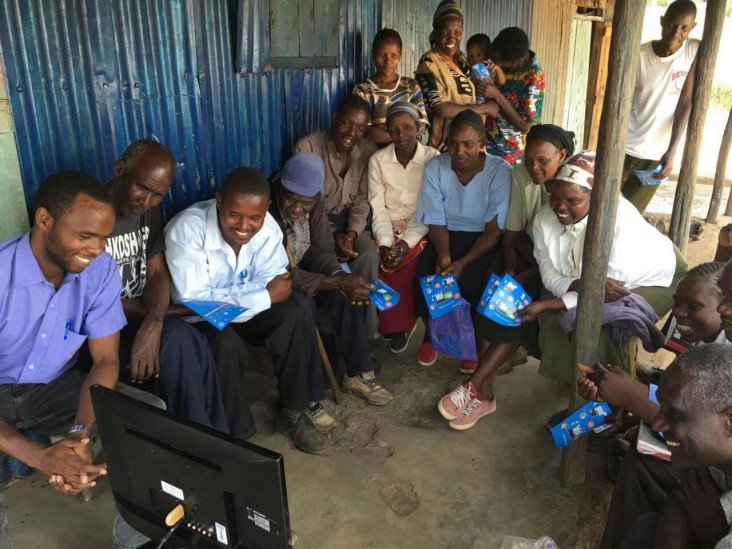
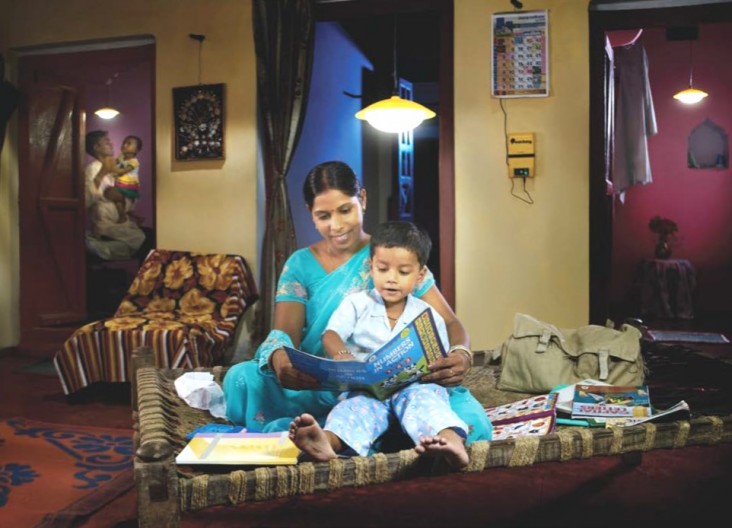
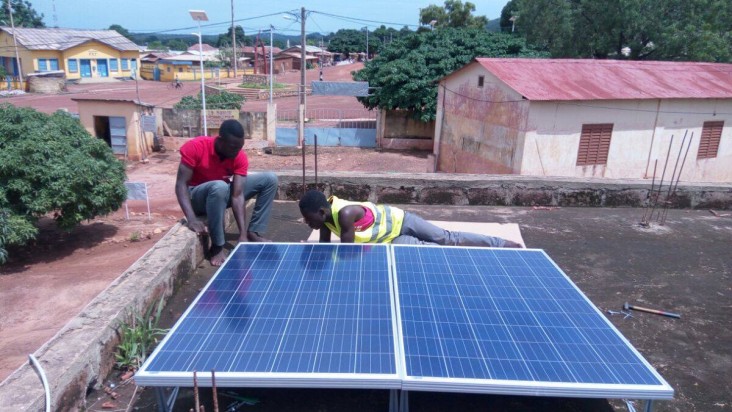
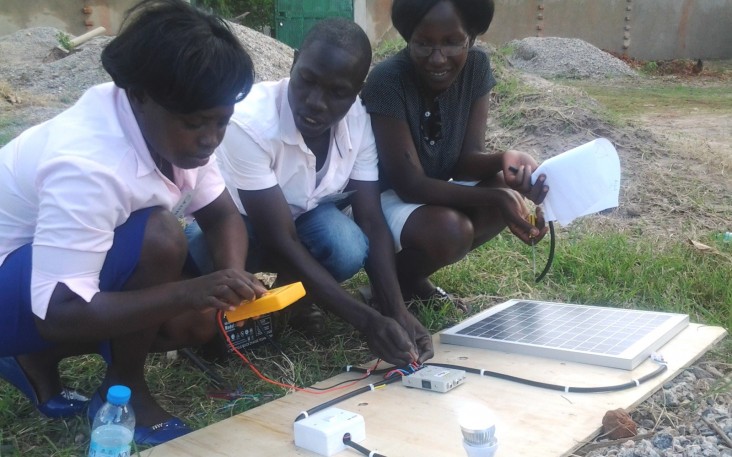
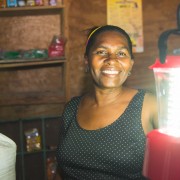
Comment
Make a general inquiry or suggest an improvement.